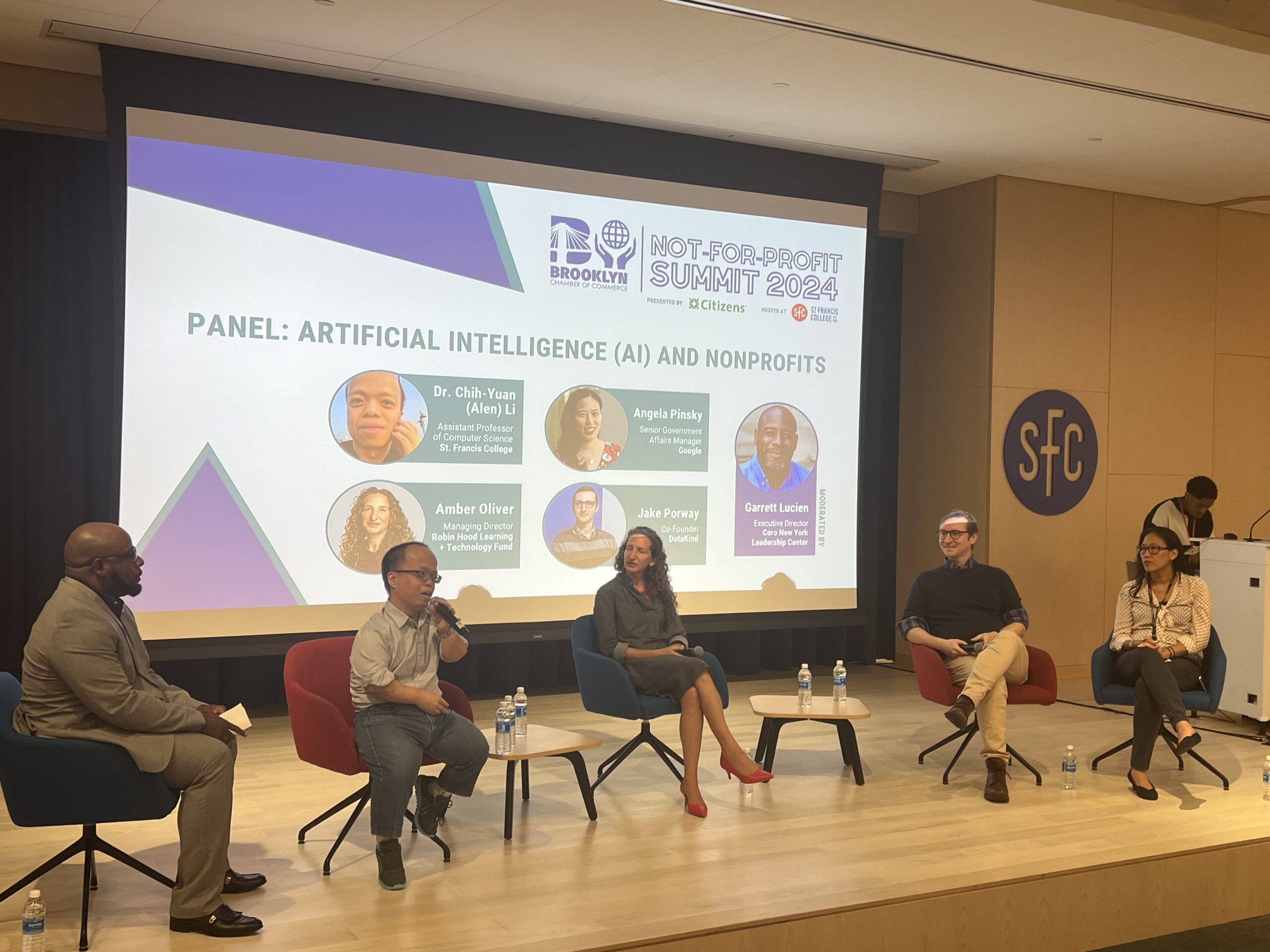Bussiness
Premium Content: BCC’s yearly not-for-profit event urges businesses to ‘Stand Out and Thrive’

DOWNTOWN BROOKLYN — The Brooklyn Chamber of Commerce (BCC) recently hosted its annual not-for-profit summit at St. Francis College, featuring several expert panelists on the topic and drawing hundreds of attendees.
This year’s theme was “Stand Out and Thrive: Strategies for Nonprofits to Shine in a Crowded Market,” and the event boasted an extensive panel on Artificial Intelligence (AI) and the role it can play in the not-for-profit sector, as well as a discussion on navigating change management.
The Executive Director of the Mayor’s Office for Nonprofit Services Johnny Celestin was the event’s keynote speaker.
“I am excited to be here in Brooklyn where the vibrancy of the nonprofit sector mirrors the spirit of this community,” Celestin said. “Nonprofits are essential to the fabric of this city and central to New York City’s economy, with over 48,000 registered nonprofits here.”

Celestin added that the sector generates more than $280 billion a year in revenue, and accounts for 22% of the workforce across all five boroughs.
“Brooklyn is home to 30% of the city’s nonprofits, which brings over $21 billion in revenue each year, and more than 130,000 jobs in this borough alone. The nonprofit sector is a major economic engine driving social progress, community well-being and job creation across the city, and particularly here in Brooklyn,” said Celestin.

Celestin pointed out that disparities do exist.
“Typically, large institutions dominate, and smaller organizations, particularly those led by minorities and women, often face systemic challenges such as limited funding and unequal access to city contracts.”
Randy Peers, BCC president and CEO, explained that the not-for-profit sector is extremely important for New York City and Brooklyn in particular.

“Some studies say it accounts for about 12% of our GDP here in the city,” Peers said.
“I’ve worked in the not-for-profit sector all my career,” he continued, adding that not-for-profits typically cover social services, hospitals and health care, cultural institutions, and the like.

The change management discussion featured Twyla Carter, attorney-in-chief and CEO at the Legal Aid Society, the largest public defender and civil legal services provider in the country and one of the largest nonprofits in New York City. Carter spoke very directly about her approach to change management.
“When you think about change management, I personally feel it’s most important to start looking at your staffing,” Carter said. “Do you have the roles that you need and the right people in those roles? And if you don’t, you have to have some serious conversations about who is doing what.”
The AI panel showcased Dr. Chih-Yuan (Alen) Li, assistant professor of computer science at St. Francis College; Amber Oliver, managing director of Robin Hood Learning and Technology; Jake Porway, the co-founder of DataKind; and Angela Pinsky, head of government affairs and public policy at Google.

Li pointed out that AI should be utilized “to make more informed and precise decisions to make life a little easier.”
Oliver referred to AI as “a powerful tool to assist in developing new opportunities and also to mitigate some potential challenges.”

Pinsky pointed out that technology is not going to solve every single social challenge one is trying to fix.
“Knowing when we want to apply it is really important,” she said. “The technology is only going to be as good as the information going into it.”










